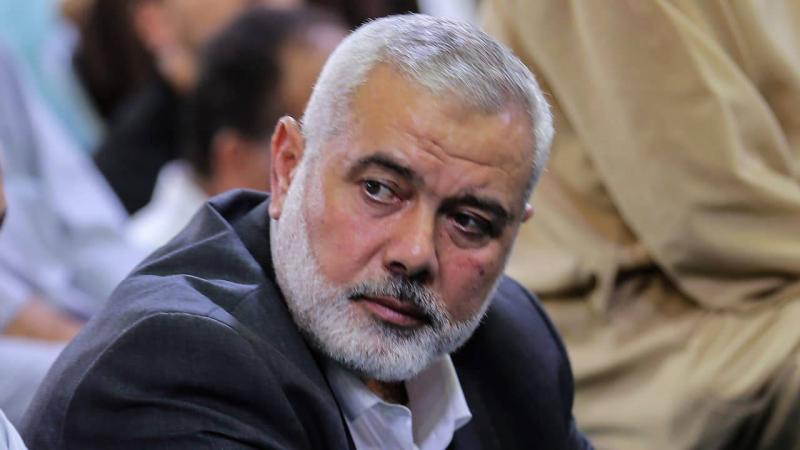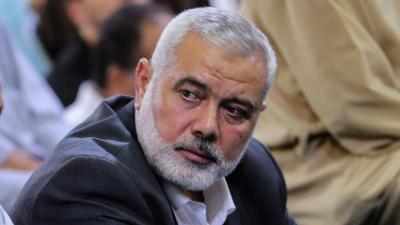Hamas and Tehran announced today, Wednesday, that the head of Hamas' political bureau, Ismail Haniya, was assassinated in the early hours of Wednesday morning in Iran, sparking a wave of threats for retaliation against Israel in a region already ravaged by war in Gaza and escalating conflict in Lebanon. The Iranian Revolutionary Guard confirmed Haniya's death shortly after he attended the inauguration ceremony of the new president of the country, stating that an investigation is underway. Haniya, who primarily resides in Qatar, has been the diplomatic face of the Palestinian movement on the international stage since the war broke out following Hamas' attack on Israel and has participated in international mediated negotiations aimed at reaching a ceasefire agreement in Gaza.
The Izz ad-Din al-Qassam Brigades, Hamas' military wing, stated in a release, "The criminal assassination of leader Haniya in the heart of the Iranian capital is a significant and dangerous event that will transfer the battle to new dimensions and will have major repercussions across the region." Iran declared three days of mourning and vowed to respond. Iranian Supreme Leader Ali Khamenei stated on Wednesday that "the Zionist entity has prepared severe punishment for itself, and avenging the blood of martyr Haniya is Iran's duty because he was martyred on its land." Iran previously launched direct attacks on Israel during the war in Gaza.
No comments or claims of responsibility from Israel have been issued. The Israeli army indicated that it is assessing the situation but has not issued any new security directives for civilians. Israeli Prime Minister Benjamin Netanyahu is expected to meet with security officials for consultations at 13:00 GMT. During a visit to Singapore, U.S. Secretary of State Anthony Blinken avoided commenting on Haniya's death, stating that a ceasefire agreement in Gaza is the way to prevent wider regional escalation. He noted that the United States did not participate in or know about Haniya's assassination. He added in an interview with Channel News Asia, "This is something we were not aware of and did not participate in. It's very difficult to speculate."
Haniya's assassination seemingly undermines chances for any imminent ceasefire agreement in the ongoing war in Gaza, coming less than 24 hours after Israel announced that it had killed a senior leader of the Lebanese Hezbollah group whom it said was behind a deadly attack in the occupied Golan Heights. Israeli Defense Minister Yoav Gallant stated on Wednesday that Israel is not seeking to expand the war but is ready to deal with all possibilities, praising the forces that conducted an operation targeting a Hezbollah leader last night in southern Beirut.
Qatar, which is mediating talks aimed at ending the conflict in Gaza alongside Egypt, condemned Haniya's death. The Foreign Ministry stated that his assassination is "a heinous crime and a dangerous escalation." Qatari Prime Minister Sheikh Mohammed bin Abdulrahman Al Thani wrote on X platform, "The approach of political assassinations and intentional escalation against civilians in Gaza at every stage of negotiation raises questions about how negotiations can proceed when one party is killing the other party they are negotiating with at the same time."
Egypt stated that "the coincidence of this regional escalation with the lack of progress in ceasefire negotiations in Gaza complicates the situation and indicates the absence of Israeli political will for calm." China, Russia, Turkey, and Iraq condemned Haniya's assassination. Iran's top security body convened to determine the strategy for responding to Haniya's killing, who is a close ally of Tehran, according to a source familiar with the meeting.
Palestinian President Mahmoud Abbas condemned Haniya's assassination, calling for a general strike and massive demonstrations by Palestinian factions in the West Bank. There was a sense of optimism among Israelis who welcomed what they perceived as a significant achievement in the war against Hamas, in contrast to residents of Gaza who fear that Haniya's death could prolong the war ravaging the Palestinian enclave. Fatima Al-Sahati, a resident of Gaza who was asleep when news of Haniya's death broke, said, "What a loss. We lost one of our own." Hashim Al-Sahati, also from the area, remarked, "This news is frightening. We feel he was like a father to us."




